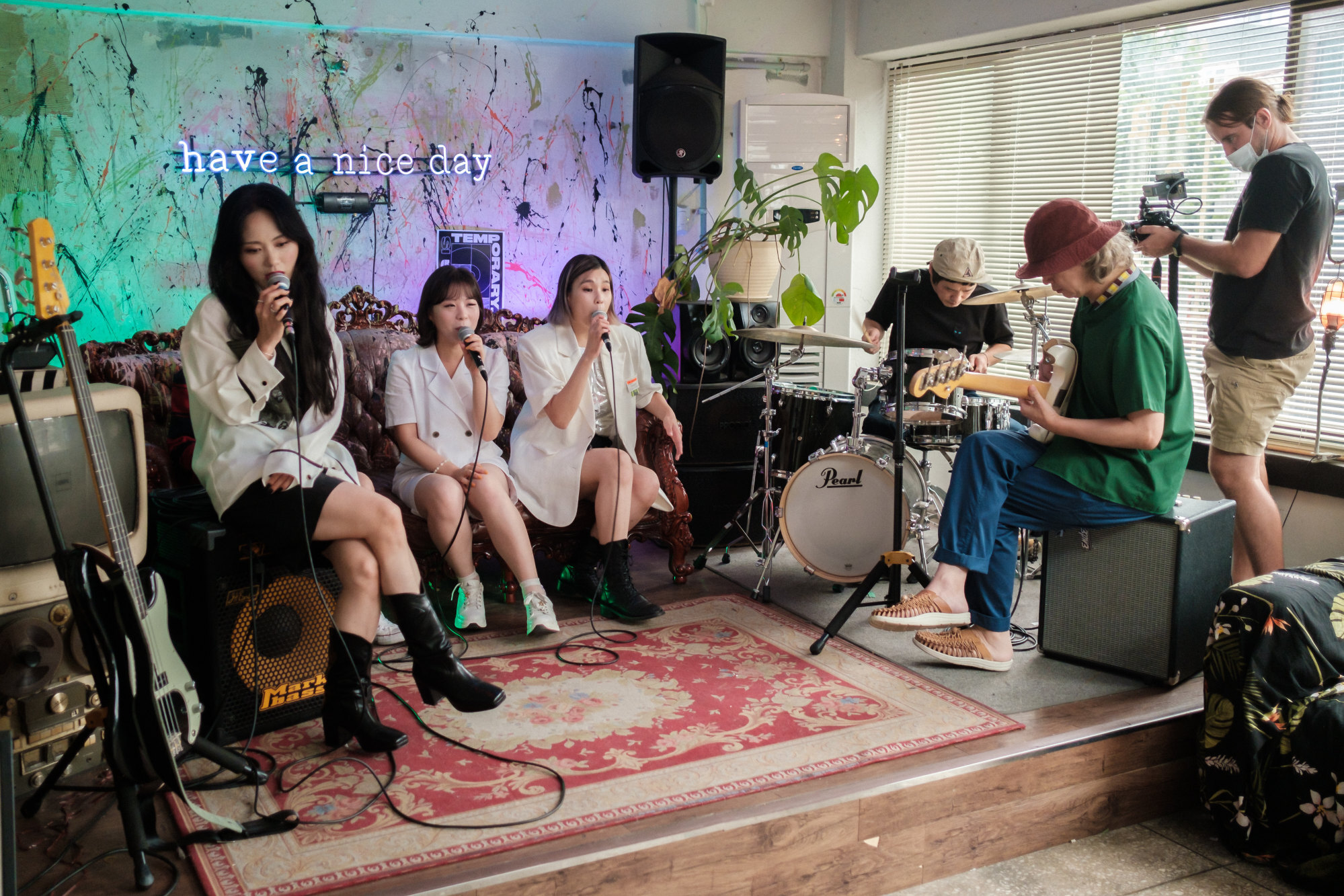Like BTS and Stray Kids' traditional sounds? Check out this alt K-pop band Leenalchi

You won top awards with your first album, so what’s next?
That’s what alternative pop group Leenalchi from South Korea is trying to figure out, almost a year after winning the top prize of Musician of the Year at the Korean Music Awards in February.
The seven members of Leenalchi come from a variety of backgrounds.
Bassists Jang Young-gyu, who has directed the music for films including Train to Busan, and Jeong Jung-yeop gained prominence within the Korean bands SsingSsing and Kiha and The Faces, respectively. Drummer Lee Chul-hee also played in SsingSsing.
The four vocalists – Kwon Song-hee, Shin Yu-jin, Ahn Yi-ho (the sole male vocalist) and Lee Na-rae – meanwhile, are all trained in classical Korean performance styles.
The band blends modern genres with traditional styles to create new takes on timeless themes originally popularised by Korean pansori plays – traditional musical storytelling featuring only percussion and vocals.
In 2020 they found immense success with their album Sugungga, which is named after, and features stories from, a classic pansori.
[embed]https://youtu.be/sZJT-K0HY7g[/embed]
Dubbed by some as “pansori pop”, Leenalchi are an indie darling in Korea’s music scene, a market where bands rarely do well compared with pop, vocal and hip-hop acts. Their success has come early – and they don’t really know what to do about it.
“We feel really honoured, but honestly I don’t know if we have gone through the growing stages of being a band,” said vocalist Lee in a call. “Sometimes I feel like we rose to stardom all of a sudden, so I feel a little bit confused.”
Leenalchi derives its name from Lee Nal-chi, one of the most famous masters of pansori and jultagi, or acrobatic tightrope-walking, in South Korean history, who lived during the 19th century.
Like the high-flying performer, Leenalchi rises above the crowd with atypical twists and turns to their music, as hip-hop and electronica elements seamlessly blend with traditional Korean vocalisation styles and instruments.
The group formed in 2018 while working on the animated music drama Dragon King. They quickly began to gain popularity in South Korea’s music scene after televised performances showed off their colourful update of traditional styles.
They even featured in a promotional video for the Korea Tourism Organisation known as Feel the Rhythm of Korea.
[embed]https://youtu.be/3P1CnWI62Ik[/embed]
Their 2020 song Tiger is Coming was especially popular, and the band recently released it as a non-fungible token (NFT).
[embed]https://youtu.be/cjtdIfZDQUE[/embed]
Now they’re among several personalities featured in a new campaign from online travel agency Booking.com that emphasises the beauty in our own “backyards”, which fits Leenalchi’s own mission of trying to modernise traditional art forms and tales they love.
“We’re trying to create new pansori that is relevant to today’s world,” Jang said.

Leenalchi admit they are a bit baffled over how they’ve become an example of wholly Korean music at a time when many Korean musicians, including glossy K-pop acts like BTS and Blackpink, are also incorporating traditional trappings and sounds into their performances and songs.
“We have opted away from the easy path, moving towards a more difficult one,” said drummer Lee.
That harder path has made them some of the trendiest musicians in South Korea today; in July, they created a music video for their song Please Don’t Go in collaboration with the popular Ambiguous Dance Company.
[embed]https://youtu.be/8ydkpCD7-Hk[/embed]
As for their goals, right now the band are just focusing on beginning work on a second album and hope it also receives the love they’ve felt so far.
“I think it’s not easy nor common for a band in Korea to receive a lot of attention, but I think our sudden rise maybe wasn’t for our music only, but because of our performances and how we garnered such a buzz,” Jang said.
“Sometimes I do honestly wonder if we are sustainable in the market,” he added.
“So from now on I think our second album will be a great test for us. I think that’s really when we’ll know what kind of music we make, and what musical story we’re creating together as a band.”
ALSO READ: Eunha, SinB and Umji of disbanded K-pop group Gfriend to form new trio
This article was first published in South China Morning Post.
